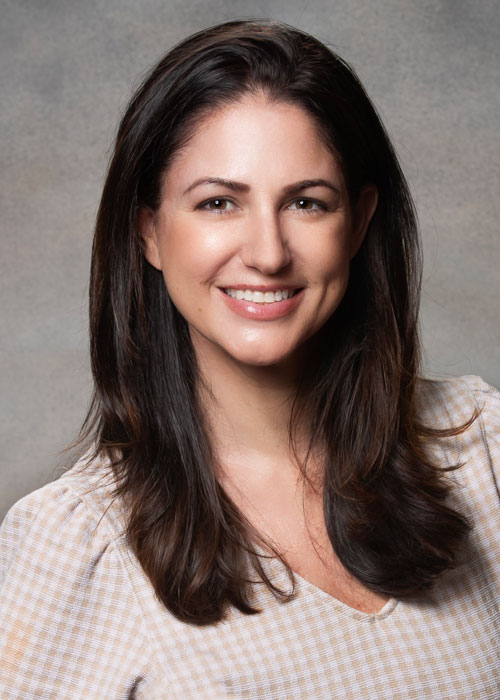A non-traditional path: Mortensen applies personal journey
 Lauren Mortensen understands her students because she’s been exactly where many of them are.
Lauren Mortensen understands her students because she’s been exactly where many of them are.
After coming to VCU straight out of high school, she decided about halfway to her degree that college wasn’t the right path for her at the time. She pressed pause and went to work, pursuing a career primarily in human resources. Nearly a decade later, she returned to campus to complete her degree while holding down a full-time job and paying her own tuition.
“I’ve seen both sides of it. Students are juggling multiple things and trying to balance their schoolwork as well," said Mortensen, who started this fall as assistant director of the B.S. in Health Sciences program in the Department of Health Administration. In her new role, Mortensen works closely with Laurie Cathers, Ph.D., assistant professor and director of the B.S. program.
With a fully online asynchronous option joining hybrid and on-campus models this fall, the program expects to attract more students already largely balancing full-time jobs and caregiving for children or parents. Students value the program’s entry point to health care professions beyond provider roles.
Mortensen leans into her previous experiences as one of those non-traditional students, more commonly known as adult learners today. In fact, she’s completing her Ph.D. in Education with a concentration in urban services leadership at VCU, where her dissertation research focuses on strategies for how leaders understand and leverage their employees’ competing obligations as an organizational strength. She also holds a bachelor’s degree in human resource management and a master’s in adult learning from VCU.
“Lauren’s unique insights with adult learners help us deliver educational experiences where all students can achieve their potential, especially as they are balancing multiple responsibilities as they pursue their degree,” said Paula H. Song, Ph.D., the Richard M. Bracken Chair and Professor of Health Administration. “She also plays a pivotal role in connecting our students to meaningful service learning opportunities where their course lessons come to life.”
Service learning allows students to apply their classroom knowledge in real-world settings, where they can hone on-the-job skills including problem-solving, critical thinking and effective communication.
“We’re looking to broaden opportunities for our students to engage with more global communities and issues as well, while keeping in mind that our students are so diverse and bring in such really strong backgrounds,” Mortensen said. “We really want to emphasize and highlight these lived experiences of some of our students.”
Mortensen spends a significant amount of time identifying and nurturing community relationships, now reimagining service learning in a virtual environment as she reaches out to partners that can offer remote experiences. That led to a virtual leadership project with a Florida-based organization that focuses on curbing teenage bullying, preventing suicide and supporting social justice initiatives.
Service learning, which also includes some career exploration and preparedness, is one of the last steps of the students’ degree paths. The program graduated its first class in Spring 2023; more than 30 students will graduate in December.
"I can't wait to see how much of an impact the program makes on the community," she said. "We have some students who are going to run the world someday."